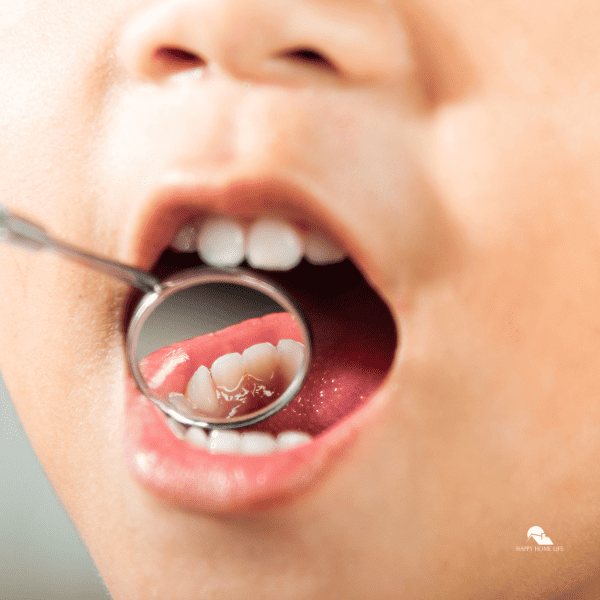It is common for children to experience fear or anxiety when visiting hospitals or anticipating healthcare appointments. There are plenty of possible reasons for this. For instance, many children find the presence of seemingly strict healthcare professionals, the unfamiliar environment, and strange medical equipment in hospitals to be intimidating. Previous negative experiences can also contribute to their unease, as it’s quite easy for young minds to associate hospitals with illness and injury.
That said, going to a clinic or tertiary hospital for checkups or treatment can still become a less stressful experience if you can create a positive impression of healthcare in your child. Addressing your child’s fear and anxiety concerning an upcoming hospital visit can be a challenge, but it’s not impossible. Here are some of the tried-and-tested ways of helping your child feel more at ease with the thought of visiting hospitals and receiving medical care:

Make a Habit of Communicating Openly About Healthcare Issues
Open and honest communication is crucial in helping children develop a positive impression of healthcare and hospitals. Encourage this habit in your home by initiating age-appropriate conversations about hospitals and explaining that the goal of doctors and nurses is to help people feel better. Using simple and reassuring language, address any concerns your child may have and answer their questions. You can also share positive stories about healthcare experiences, whether personal or from books. These can help normalise the idea of seeking medical care. Talking openly about hospitals and healthcare can create a foundation of trust and make your child feel less anxious about healthcare visits.
Use Play and Role-Playing
Introducing healthcare concepts through play makes the experience of seeing healthcare professionals less intimidating for children. To this end, you can try role-playing games and use toy medical kits, dolls, or stuffed animals to simulate medical scenarios. Employing a hands-on approach allows your child to become familiar with common medical instruments and procedures in a fun and interactive way. Through play, kids can also gain a sense of control over the situation. Feel free to participate by taking on the roles of both healthcare providers and patients while role-playing with your child.
Visit Child-Friendly Healthcare Facilities
Choosing healthcare facilities known for their child-friendly environments is another way of cultivating a positive impression of hospitals in your child. Go to paediatric hospitals with colourful and inviting features that are designed specifically to make children feel comfortable. When possible, opt for such facilities for routine check-ups or medical appointments.

Familiarise Your Child with Medical Equipment
Introducing common medical equipment to your child through play helps demystify these items and reduces anxiety during actual medical encounters. Try to incorporate toy stethoscopes, blood pressure cuffs, and other medical props into your child’s playtime.
Then, make an effort to explain the purpose of each item in simple terms. Allow the child to use them in a playful context as well so that they can enjoy a hands-on learning experience. This familiarity can translate into a more positive and comfortable attitude when faced with similar equipment during real medical situations.
Read Books about Hospitals
Reading age-appropriate materials that depict positive experiences in hospitals can be an effective way to prepare your child for healthcare visits. Look for books or comics that feature relatable characters going through routine medical check-ups or facing health challenges with courage.
Reading together gives you the chance to discuss the stories, address any of your child’s questions or concerns, and reinforce the positive aspects of seeking medical care. Books also serve as a valuable tool for normalising the healthcare experiences and fostering a sense of familiarity.
Use Positive Language
Using positive language is essential in shaping a child’s perception of healthcare. Make a conscious effort to avoid using terms that may evoke fear when discussing hospital visits. Focus on describing medical experiences in a reassuring manner and emphasise the positive aspects of seeking medical care, such as getting help to feel better. This helps frame healthcare as a supportive and beneficial endeavour that kids can look forward to. Choosing words that convey comfort and care contributes to creating a positive association with medical environments and procedures.

Accompany Your Child During Routine Check-ups
It’s a must for parents to show up with their child in the hospital or doctor’s office. Beyond providing necessary guardianship, your presence during these schedules provides your child with the support and reassurance they need. By being present, you’re actively demonstrating that routine healthcare is a normal and important aspect of overall well-being. Your involvement helps children feel more secure and contributes to positively influencing a child’s perception of medical care.
Reward Positive Behaviour
Acknowledging and rewarding positive behaviour during healthcare visits reinforces a child’s sense of bravery and cooperation. Establish a system where your children receive praise and a small reward for exhibiting positive behaviour. If they cooperate during medical examinations or express their feelings about your next hospital visit openly, acknowledge their effort and courage. This positive reinforcement encourages your child to exhibit a cooperative attitude toward healthcare.
Involve Them in Decision-Making
Involving your child in decision-making related to their health empowers them and helps reduce their anxiety. Depending on your child’s age, you can discuss aspects of medical care and allow your child to express preferences when appropriate. For example, ask their opinion on choices like selecting a favourite bandage or deciding on a comforting item to bring to the appointment. Children who feel a sense of control over aspects of their healthcare are likely to foster a positive attitude when visiting clinics and hospitals.

Be a Calm Presence
As a parent, you are your child’s role model. They look up to you to see how to react to unfamiliar sights and sounds, for instance. Thus, make an effort to maintain a calm and reassuring demeanour during healthcare visits. Your actions will give your child cues on how to react, so strive to convey a sense of calmness and confidence. Offering comfort through physical presence, soothing words, and a reassuring touch can significantly ease your child’s anxiety as well.
Use these strategies to alleviate your child’s fear of medical appointments and help them build a better opinion of the healthcare facilities and professionals. This way, you can reduce the level of stress and anxiety that comes with every checkup, treatment, or hospital visit.






